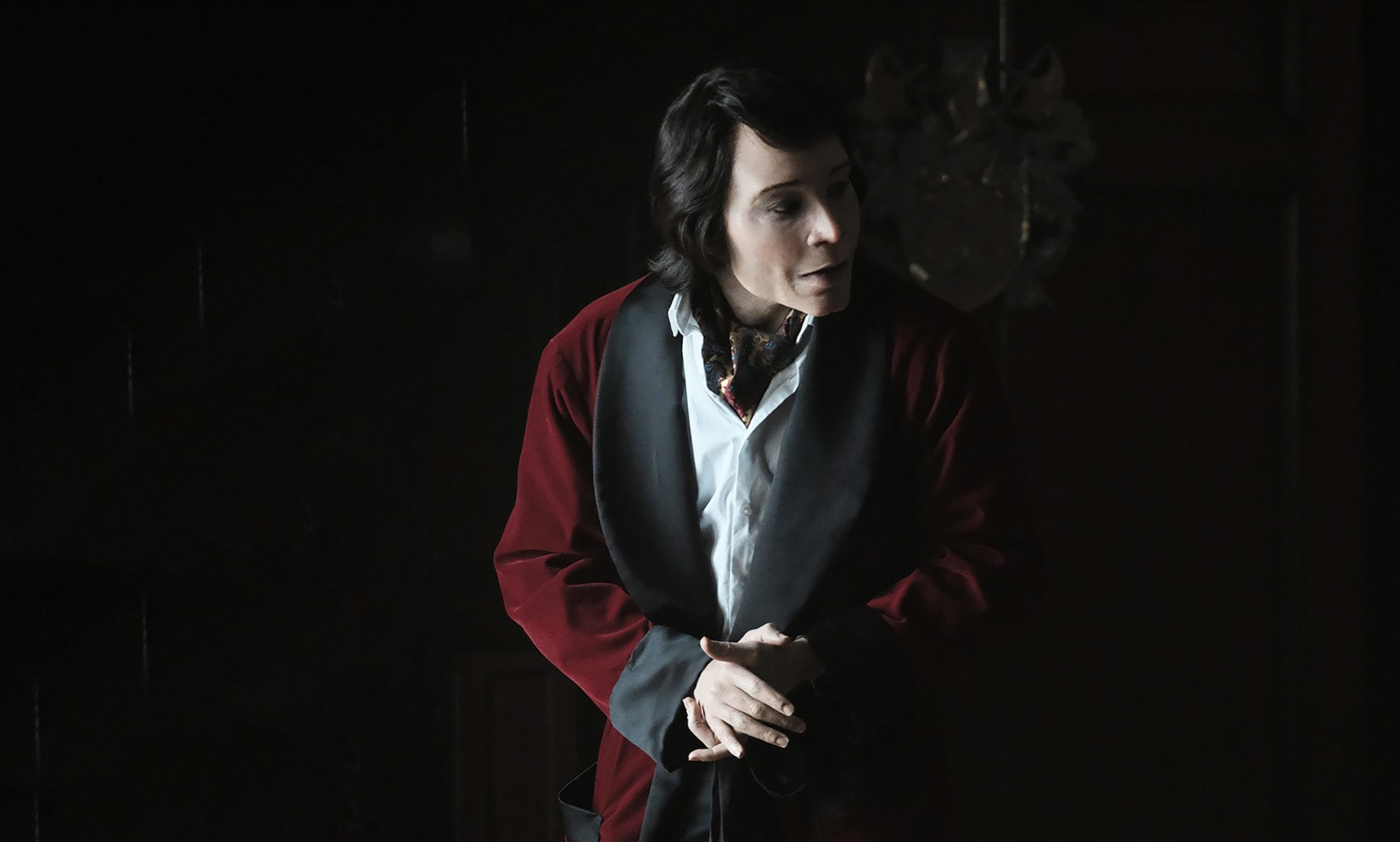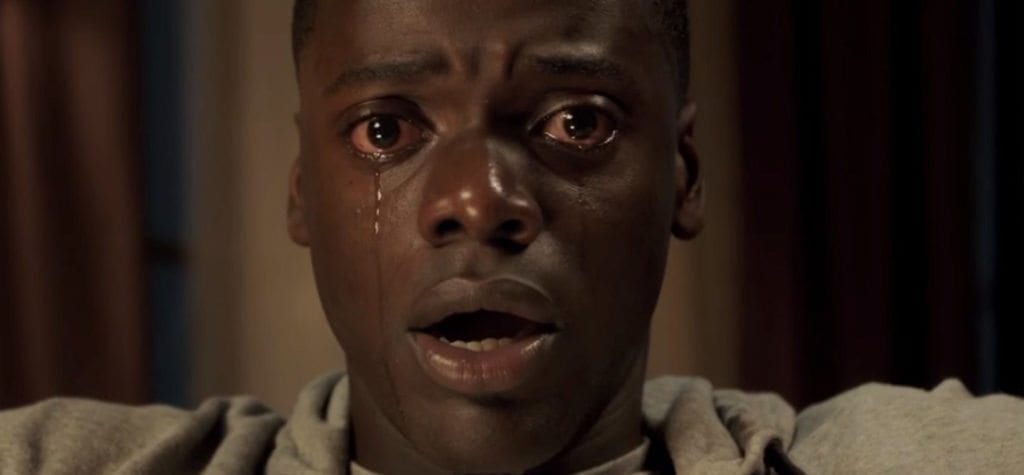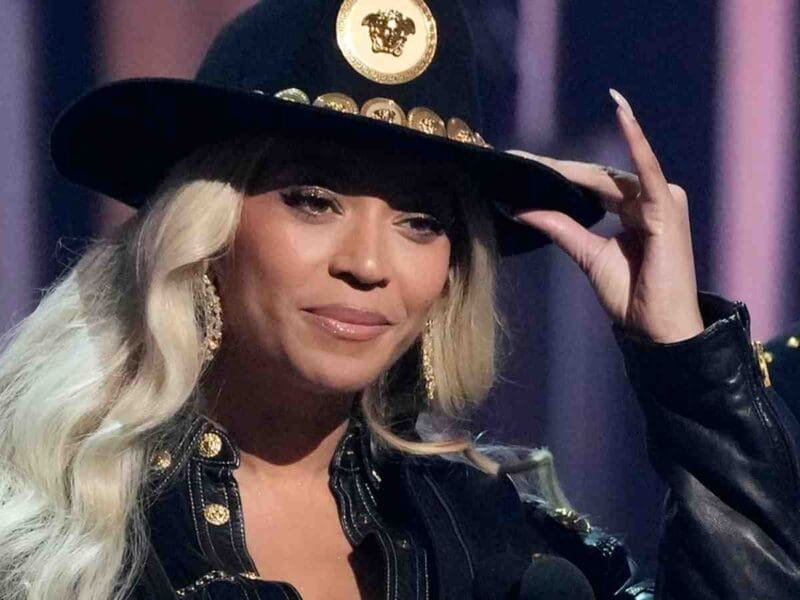
‘Atlanta’ “Robbin’ Season”: The many terrifying layers of Teddy Perkins
Shrouded in mystery and airing completely (and ominously) free of commercials, the “Teddy Perkins” episode of Atlanta was a haunting masterpiece. Featuring Donald Glover in whiteface as one of the creepiest characters ever committed to television, the 41-minute episode offered an unexpected pitstop into the horror genre.
“Teddy Perkins” drifts between moments of terror, tension, and comedy while also masterfully exploring some pertinent themes like racial politics, American identity, and the harrowing nature of familial abuse within a set of striking cultural references. The episode has an unfathomable number of layers to it and, like an eerie old white man smashing open a hard boiled Ostrich egg with a tiny hammer, we’re diving in to unfurl this TV masterpiece at every crucial level.
The obvious Michael Jackson allusions
There are a number of obvious surface references to the late King of Pop such as Teddy’s high-pitched voice, the suggestion of Benny’s “rare skin condition” (a sly wink to Michael’s vitiligo), his uncanny resemblance, and even his comical reminder to himself to finish a hat for Dionne Warwick (a notable good pal of the late singer). The entire episode acts as an extended metaphor for the life and career of Michael and for his public and private personas.
There are explicit parallels between the manner in which Teddy & Benny’s father abused them as children to become great musicians and how Joe Jackson reportedly did similar to Michael and his siblings. Teddy’s desire to turn his and Benny’s mansion into a museum for his brother’s talent also draws parallels to Michael’s Neverland Ranch – a place where the star could obscure himself within the nostalgia of a faded moment.
In “Teddy Perkins”, Benny is hidden downstairs while his brother makes plans to celebrate (upstairs) who he used to be to the public. The duality between Teddy and Benny could be read as a reflection between the Michael we saw (Teddy) and the actual person behind the character (Benny) – a man dealing with unseen psychological and physical struggles.

The horror of the abusive families
The episode leans on the extended metaphor surrounding the life of the late musician to explore the horrors of familial abuse. Teddy explains to Darius (Stanfield) he’s building a “Great Father” wing of the house in which he intends to celebrate men like his father. “Joe Jackson, Marvin Gaye Sr., Tiger Woods’s father, Serena Williams’s father, the father that drops off Emilio Estevez in The Breakfast Club.”
There’s an obvious commentary regarding the apparent cost of great success in our culture (particularly for people of color) and it’s one that feels especially intense in regards to the mention of Marvin Gaye Sr. As we all know, in 1984 Marvin Gaye was shot and killed by his father during a family altercation (not too dissimilar from the one that ends the episode.)
“Teddy Perkins” also features a heap of horror movie references and tropes in regards to this theme. With Teddy sharing the last name of actor Anthony Perkins, the episode draws direct parallels to Psycho. The unsettling location also evokes cadences of Bates Motel.
The awkward conversations between Darius and Teddy feel similar to those shared by Norman and Marion Crane (Janet Leigh), but most notably the disturbing family dynamics share echoes with the Bates family. While Norman was harboring the corpse of his mother in the basement and taking on her persona to murder people, Teddy hides his brother in the basement and is arguably taking on the persona of his father to further his abuse.
There are also obvious references to Robert Aldrich’s What Ever Happened to Baby Jane? Jane (Bette Davis) abuses her wheelchair-bound sister Blanche (Joan Crawford) in a similar manner to how Teddy treats Benny, with both sets of siblings shadowed by a dimming fame.
But there’s another more sinister suggestion to another majorly dysfunctional horror movie family. The moment Teddy cracks open the owl casket with a hammer is oddly reminiscent of the scene in The Texas Chainsaw Massacre in which Grandfather (John Dugan) attacks Sally (Marilyn Burns) with a tiny hammer in a house stacked with the carcasses of former kills, just as the Hope Mansion is haunted by the carcass of a lost childhood and obsolete fame.

The cost of Uncle Sam’s success
Throughout “Teddy Perkins” there are repeated explorations into the cost of fame that parallel with the commentaries made concerning racial politics and American identity. In a playful reference to Jordan Peele’s Get Out, Teddy surprises Darius with a Polaroid camera and takes his picture (he isn’t “much of a picture person” and shelters his face.)
The scene feels wonderfully evocative of a similar moment in Get Out in which Chris (Daniel Kaluuya) takes a picture of Andrew (also played by Stanfield) and causes him to glitch. In “Teddy Perkins” it offers a disarming moment of surprise, but it also plays into a running theme of the episode: as a culture, we’d rather maintain snapshots of the past than remember events as they actually were.
It’s likely no accident that the mansion in which these two black men live resembles a plantation or that the story begins with a confederate flag cap being defaced by Darius so it reads “u Mad” instead of “Southern Made”.
Furthermore, there are numerous allusions to physical manifestations of historical pain (like the confederate flag or Teddy’s proposed museum) that match a statement made by Teddy. In correcting Darius’s suggestion the brothers were beaten by their father to be good at piano, he counters, “to be good at life . . . great things come from great pain.”
What the episode appears to comment against is the cultural conceit that sacrifice and suffering can amount to progression and invention. From the “Google Sammy Sosa hat” comment to the underlying racial tension throughout the episode, “Teddy Perkins” offers a caustic takedown of white imperialism.

As Vulture suggested, “There’s an equation here of the abusive black father (who only wanted his children to succeed in the white man’s country, and in a white-run industry) and the ‘Great White Father’ of Uncle Sam, insisting that everything the country does, no matter how depraved, is ultimately for the good of its citizens in the name of apple pie, motherhood, and self-improvement.”
As the episode suggests, such cultural values are an old relic of America that should no longer see the light of day. Just as Darius discovered the true cost of the “free” piano he found on Craigslist, the episode proposes an ideal cost of American life, values, and success: totally and utterly free.







